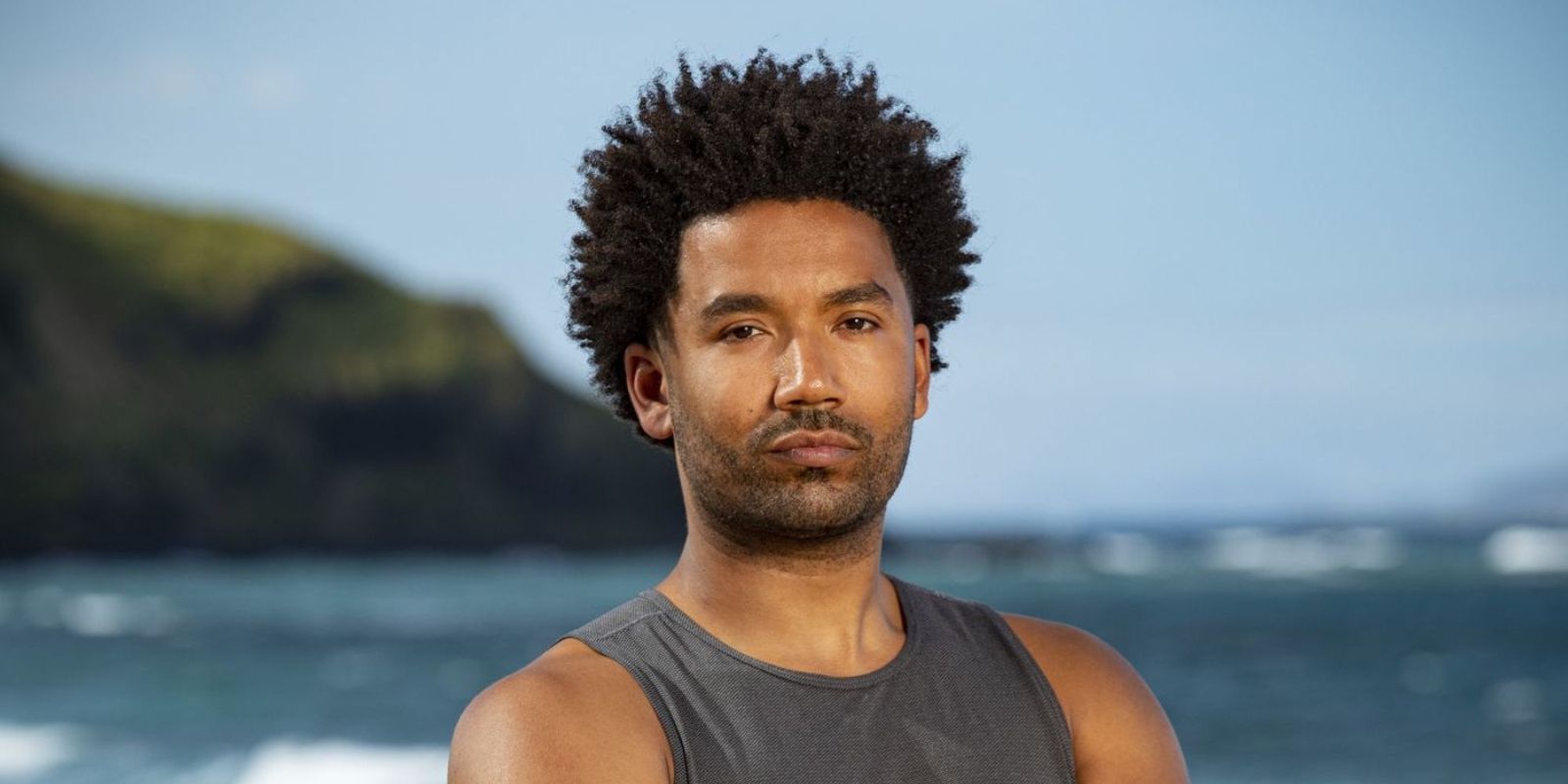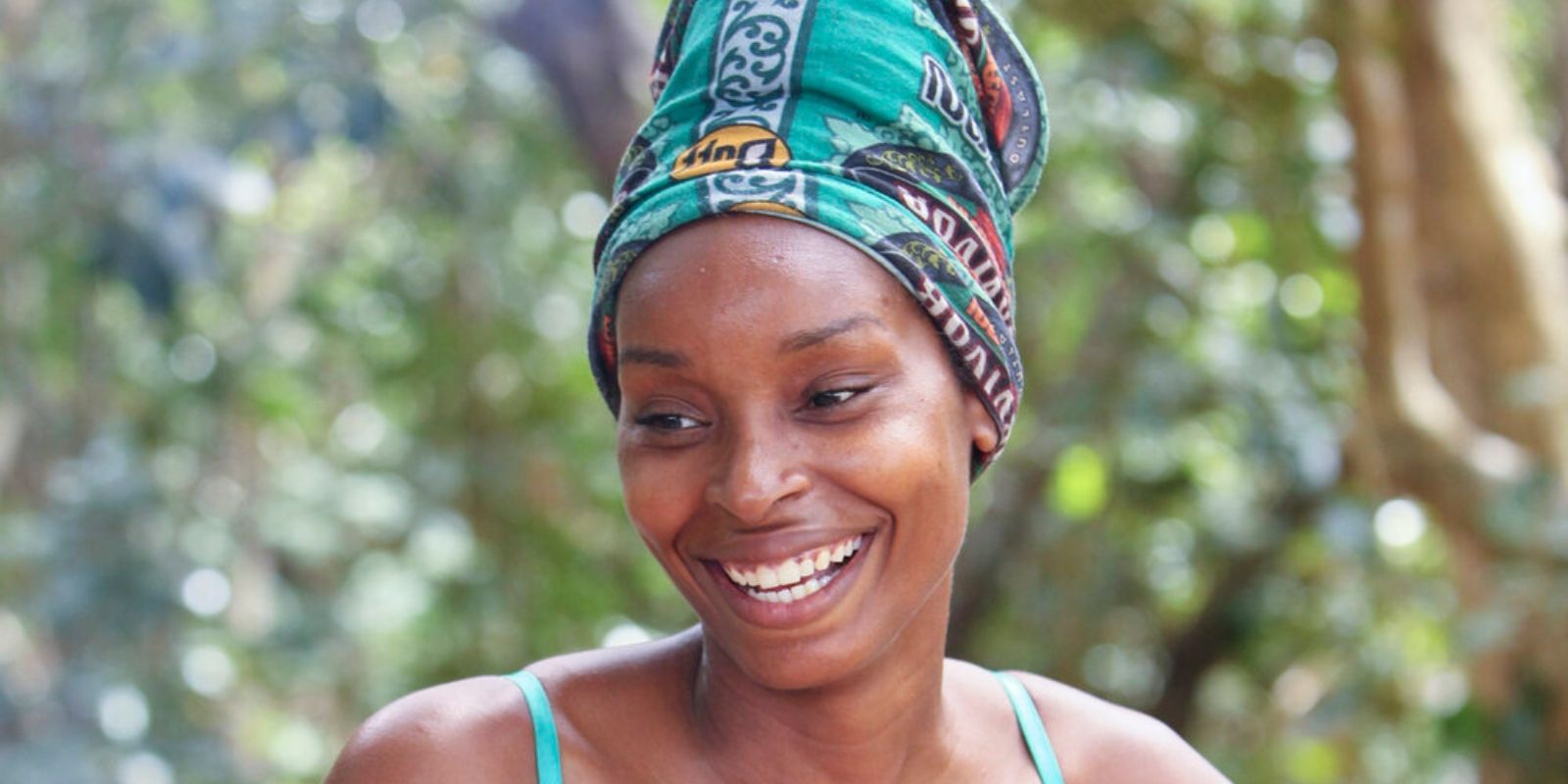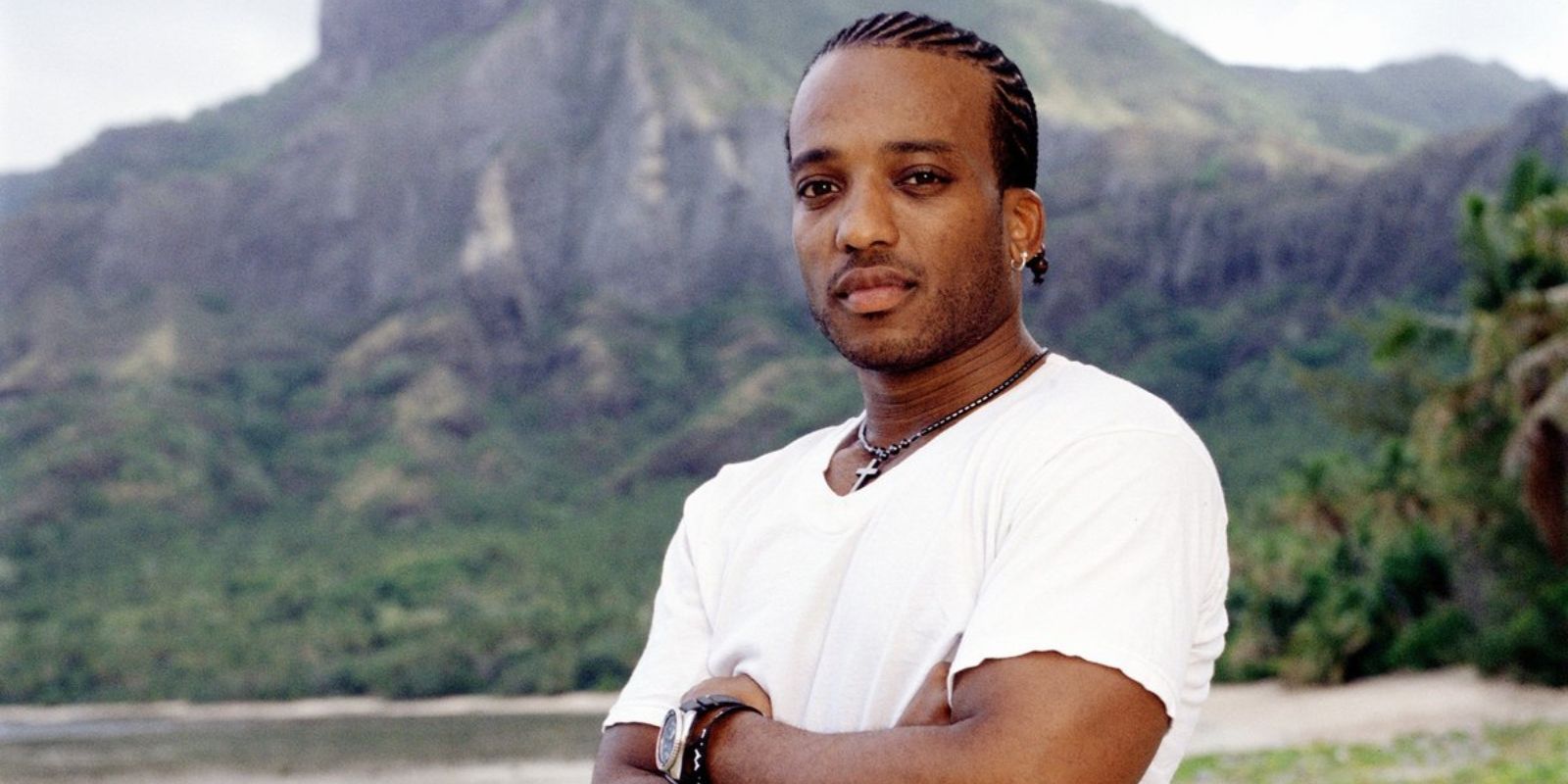Some of the most important scenes in Survivor history never aired. They have been left on the cutting room floor in exchange for simpler narratives, ones that re-enforce stereotypes and tropes that continue to marginalize the Black community.
Despite progress, Black Survivor contestants have never truly been given a fair shot to play this game, forced to code-switch and grapple with the duality and intersectionality of being themselves while also surviving in a competition in which they are almost always the minority.
As swaths of activists all over the country fight for racial justice, in policing, in prison sentencing, in the voting booths and the workplace, Black Survivor contestants are using their collective voices to ensure they can have a seat at the table as well.
'I know what they want from me'
It’s July, more than three months since Wendell Holland was voted out on Survivor: Winners at War, and still, before we begin our conversation, he’s responding to a troll on Instagram to explain that systemic racism exists. Exists. The one-dimensional way in which Wendell was depicted on his second season of the show left him vulnerable to racist attacks on the Internet.
He was hopeful Survivor would include his talk with cop Sarah Lacina, where he explained to her why police brutality was a significant issue in America. It didn’t make the cut. When racial slurs were used around Wendell, no one was punished or reprimanded.
An immediate first step to improve the experience of Black Survivors on the island is to pull from a more diverse casting pool. Brice Johnston, castaway from Survivor: Cagayan and host of the Purple Pants Podcast, said if the show’s recruiters spent less time in areas where there is a majority white population and more effort pulling from, say, Historically Black colleges and universities, the casting of Black contestants wouldn’t be viewed as a quota. The goal is not to strive for tribes to resemble the exact percentages of race of America, but rather make it intentional to find standout personalities from underrepresented communities.
Wendell said casting is only part of the necessary shift that must be made.
“We can have all the people of color as castaways out there,” Wendell said, “but if our stories aren’t digested and shown in the right way, then it almost doesn’t matter that there are so many Black castaways or minority castaways.”
Brice takes immense pride in being the first openly gay Black man cast on Survivor, 28 seasons in. But with that opportunity came a burden. Because there wasn’t the same type of representation in the people telling the story behind the camera, Brice had to be hyper-aware to not play into stereotypes. He knew that would be a challenge before he started the game. Brice sent in three outfits for consideration, and the one selected for him opened the box the editors wanted him to fit in. Brice, who has since embraced that sartorial choice as his brand, thought then, “I know what they want from me.”
After watching his season and the ones that have followed, Brice said, “I feel like they don’t really know how to portray us."
'Across the board'
J’Tia Hart, who competed on the Brains tribe in Cagayan, wanted to be on Survivor in large part because she didn’t see any Black nuclear engineers on television growing up. Though her time on the show was short-lived, her story could have provided the audience with a fuller picture of who she was and what she has accomplished as a Black woman in an underrepresented field. It didn’t.
“It’s across the board,” J'Tia said. “Our stories carry. I think they need to tap into that.”
There is a temptation, among some who may not understand the unique challenges that a Black contestant on Survivor faces both during filming and airing, to write these concerns off as a simple dissatisfaction about a less-than-stellar edit. That’s what J'Tia, in her petition, as well as a wealth of Black Survivors spanning 40 seasons who have spoken out about these issues over the past few weeks on platforms like Rob Has A Podcast, are working to combat against.
Jamal Shipman’s experience on Survivor: Island of the Idols signified both an example of progress and stagnancy. When Jamal’s ally Jack Nichting referred to his buff as a do-rag, it led to a greater dialogue of micro-aggressions and the damage they can inflict on people of color. This happened, though, after Jamal had been shown as arrogant earlier in the season. Since season 1, with Ramona Gray and Gervase Peterson, Black Survivors have been characterized as lazy. Angry. Unhinged. It’s a pattern, clear to those who experience it and those who can relate watching at home. These unjust consistencies are less obvious to countless others, unless they intentionally think about it.
The subtle editing choices may not be conscious efforts. And Jamal wants to be clear: he is not calling any one person who works for Survivor racist. Rather, it’s “Acknowledging the systemic nature of it,” he said. “That by doing nothing and by just telling stories and by just doing things as they’ve always been done, you wade into making these kinds of mistakes and having these kinds of effects on people of color. So it’s acknowledging that there is systemic momentum to Survivor that needs to be interrupted.”
'We want to talk to CBS'
Since J’Tia’s petition started circulating, there have been signs of encouragement. This effort has gained media attention, including a discussion on NPR. More than 6,000 people have added their signatures. But there is still so much more work to be done. As Wendell points out, Survivor has 8 million viewers. His social media following dwarfs the amount of signatures on the petition. Where are they? Where are the fans?
For all its warts, Survivor has taken longer strides to be ahead of the curve on these issues than many other reality shows. The idea of implementing widespread transformations - more Black contestants, more Black producers, more Black psychologists - is that Survivor can be a leader in its genre, helping to usher in a new era in television the same way it did in the summer of 2000. Like America, we can still love Survivor while constantly demanding better.
In an interview with The Hollywood Reporter, Jeff Probst broadly spoke on the lack of diversity in Survivor, referring to what is going on in this country in the aftermath of the murder of George Floyd as a “beautiful upheaval.” He hasn’t yet addressed the anti-racism petition nor apologized for the decades-long lack of representation and problematic portrayal of Black contestants. Given time, perhaps that will change. Wendell said he’s ready for that conversation to happen now. He said, plainly, “We want to talk to CBS.”
'How you react'
Regardless of how Survivor responds in seasons 41 and onward, both in casting and staffing to reflect a wider range of races and sexual orientations, a great deal of responsibility still rests on the fanbase. It is up to the viewers of this show to understand why certain narrative choices were made, to not judge contestants with incomplete stories, to learn from conversations that extend beyond the game and to never stop expecting less from an incredibly entertaining yet systemically flawed show. Brice hammers this point repeatedly like a kick drum, and we should too: Representation matters.
There is a scene in Survivor: Marquesas, the fourth season, where Sean Rector is sitting on the beach with Vecepia Robinson, the first Black winner. He tells the camera, “Sometimes the game isn’t necessarily fair, because me and her are playing a whole other mental game that they don’t even know.” This scene has largely been forgotten in Survivor history. Imagine if Sean and V's words had been elevated, replayed over and over like Boston Rob's Godfather confessional. Maybe we weren't ready to bring that message to the forefront then. Are we ready now?
It’s been a year since Wendell last competed on Survivor, but he is still playing a game. Still using his platform to educate. Still receiving hate on a regular basis. Still living as a Black man in America. He has been wearing a look of exasperation on his face in the months since Winners at War aired, managing the fallout of his villainous edit with the racism that continues to pervade this country.
Through it all, he speaks with a fierce determination about being a part of the positive change. In Survivor and in life. The two, as it turns out, aren't that dissimilar from each other.
“It’s not what life gives you,” Wendell said, “it’s how you react.”
Here is the link to sign the petition for anti-racism by Survivor Entertainment Group.





